Step by Step how to deploy flutter on Firebase Hosting
 Thirdy Gayares
Thirdy Gayares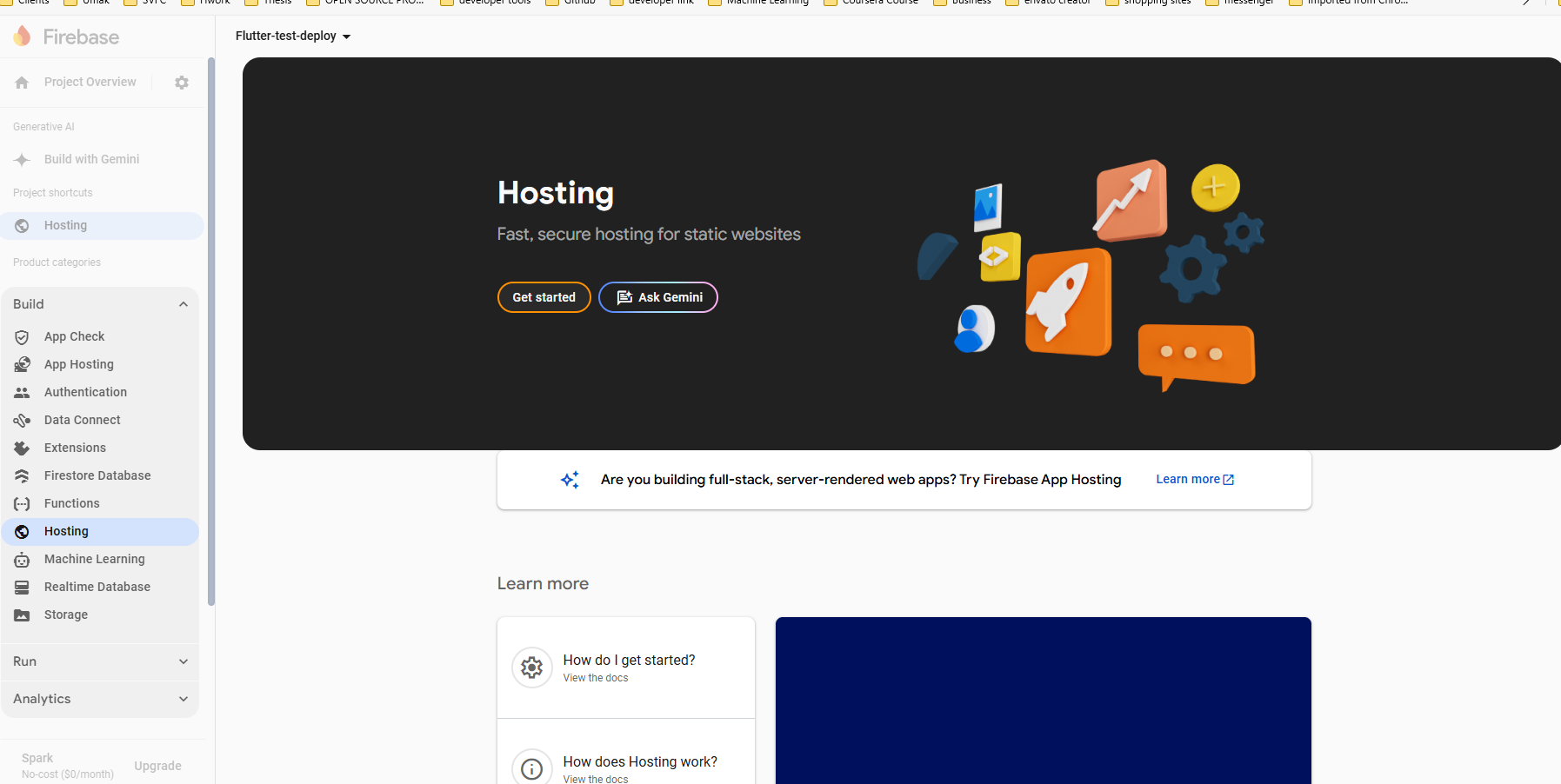
1. Install Firebase CLI
First, you need to install the Firebase Command Line Interface (CLI) to interact with Firebase from the terminal.
If you have Node.js (Make Sure if none you can downloat it from their official website) installed, run this command in your terminal:
npm install -g firebase-tools
After installation, verify that Firebase CLI is installed by running:
firebase --version
if no problem encountered, We are ready to go on to the next step
2. Create a Firebase Project
- If you don't already have a Firebase project, create one in the Firebase Console. You’ll need this project to host your Flutter app.
Go to this link and login
Go to Console
Click Create Project

I named it flutter test deploy

Go to Hosting Tab
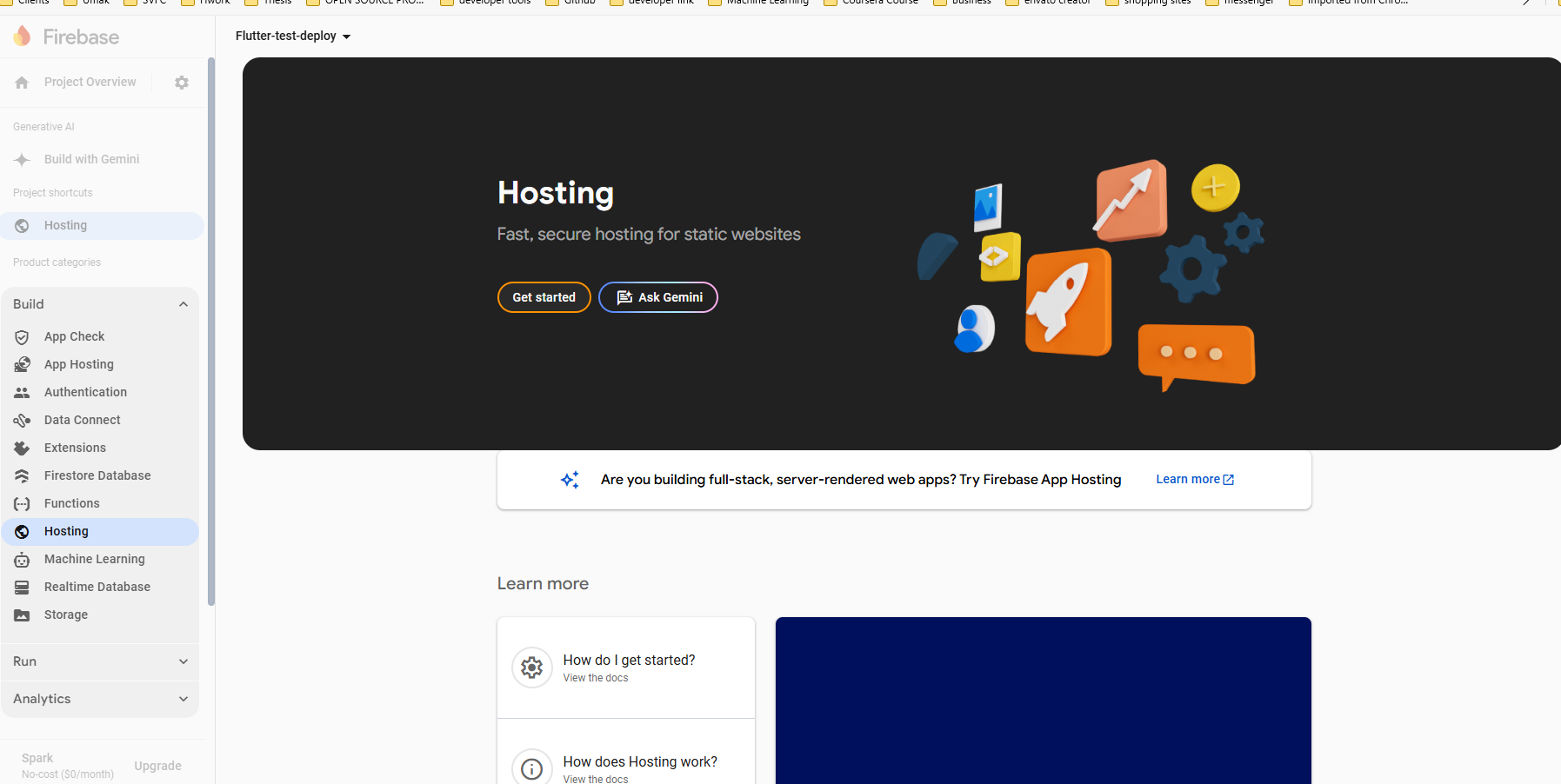
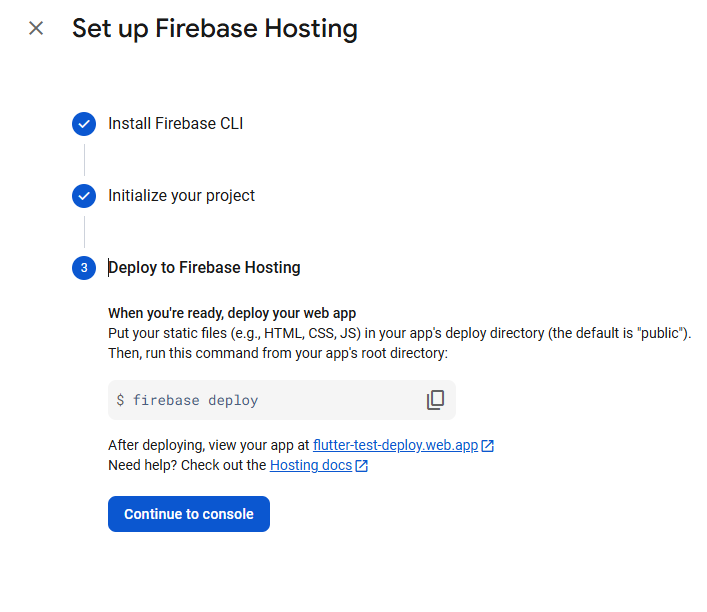
Just Click continue to console
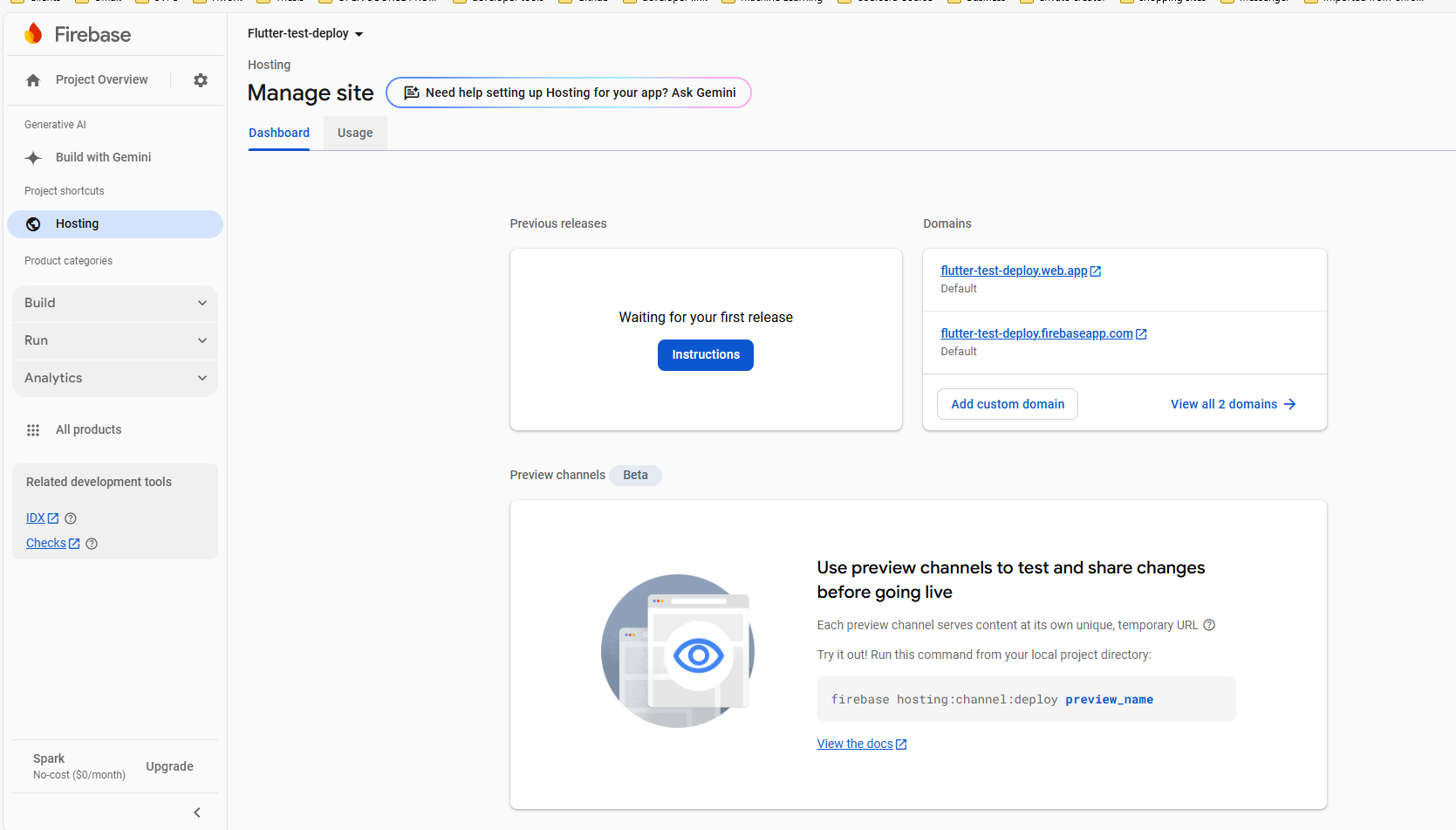
and here we have site, If you click the link:
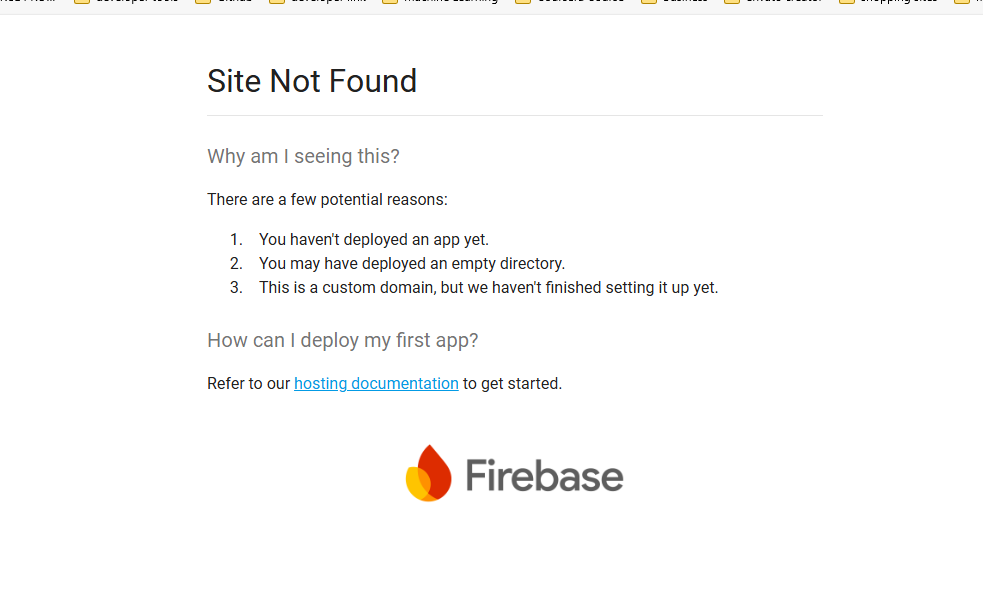
Site not found cause we did not yet deploy our flutter app
3. Log in to Firebase
Log in to your Firebase account by running in your cmd:
firebase loginFollow the instructions to authenticate your Google account.


If successfully

4.Firebase CLI provides web framework support. To enable it, call the following:
firebase experiments:enable webframeworks

4. Set Up Your Flutter Web App

Ensure your Flutter app is ready for web deployment by switching to the
webplatform:flutter config --enable-web
Build your Flutter web app:
flutter build webThis will generate a
build/web/directory that contains the compiled files for your web app.
again this is from bash but it the directory of my flutter project
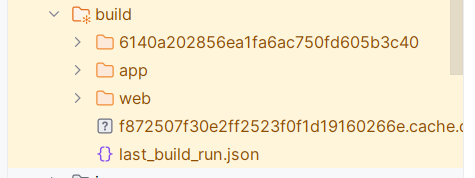 💡as you can it generates a build folder on your Flutter app. Every time we change or modify our app, if we deploy for the next version we need to
💡as you can it generates a build folder on your Flutter app. Every time we change or modify our app, if we deploy for the next version we need toflutter build. to rebuild your changes and ready for deployment
5. Initialize Firebase Hosting
Navigate to your Flutter project directory in the terminal, and then initialize Firebase Hosting:
firebase init hosting
When prompted:
Select your Firebase project.

Clieck Enter
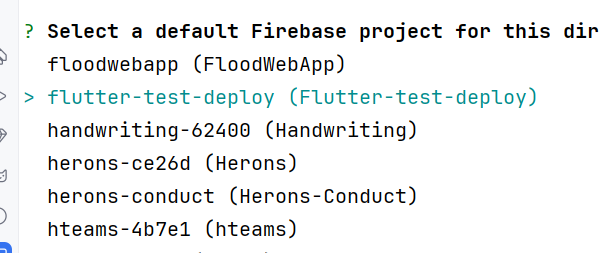
flutter-test-deploy project. 
type y and enter

Choose Asia if you are in Asia. Ask me why ?

type n , as of now

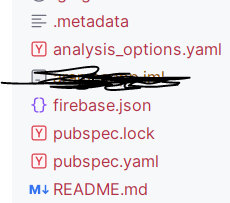
6. Deploy to Firebase Hosting
Deploy your Flutter web app by running:
firebase deploy

- After deployment, Firebase will give you a URL where your app is hosted.
7. Access Your App
- Once the deployment is done, Firebase CLI will show the URL where your app is live. You can now access your Flutter app on Firebase Hosting.
HERE IS OUR OUTPUT:
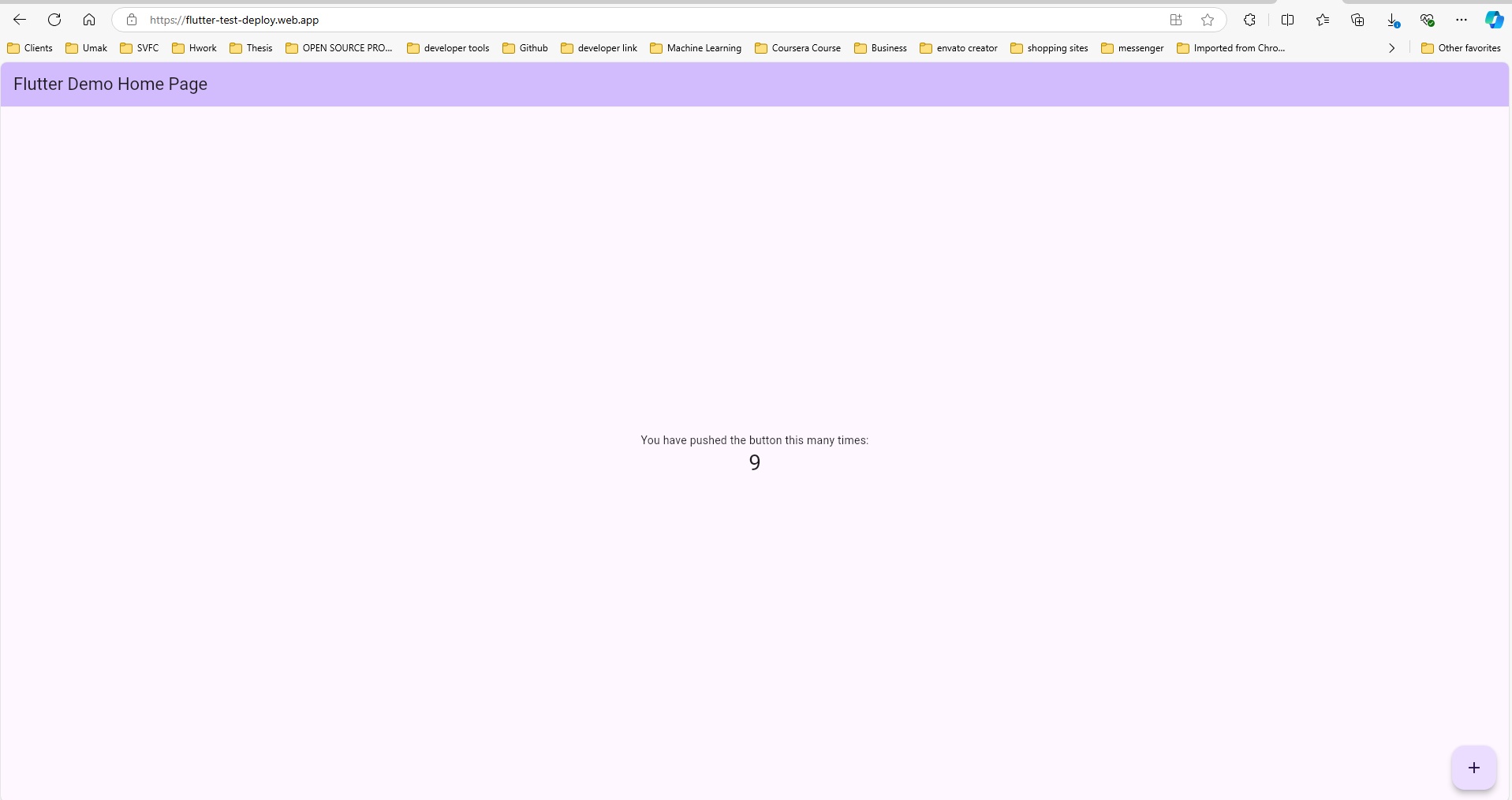
Flutter Demo (flutter-test-deploy.web.app)
Subscribe to my newsletter
Read articles from Thirdy Gayares directly inside your inbox. Subscribe to the newsletter, and don't miss out.
Written by

Thirdy Gayares
Thirdy Gayares
I am a dedicated and skilled Software Engineer specializing in mobile app development, backend systems, and creating secure APIs. With extensive experience in both SQL and NoSQL databases, I have a proven track record of delivering robust and scalable solutions. Key Expertise: Mobile App Development: I make high-quality apps for Android and iOS, ensuring they are easy to use and work well. Backend Development: Skilled in designing and implementing backend systems using various frameworks and languages to support web and mobile applications. Secure API Creation: Expertise in creating secure APIs, ensuring data integrity and protection across platforms. Database Management: Experienced with SQL databases such as MySQL, and NoSQL databases like Firebase, managing data effectively and efficiently. Technical Skills: Programming Languages: Java, Dart, Python, JavaScript, Kotlin, PHP Frameworks: Angular, CodeIgniter, Flutter, Flask, Django Database Systems: MySQL, Firebase Cloud Platforms: AWS, Google Cloud Console I love learning new things and taking on new challenges. I am always eager to work on projects that make a difference.